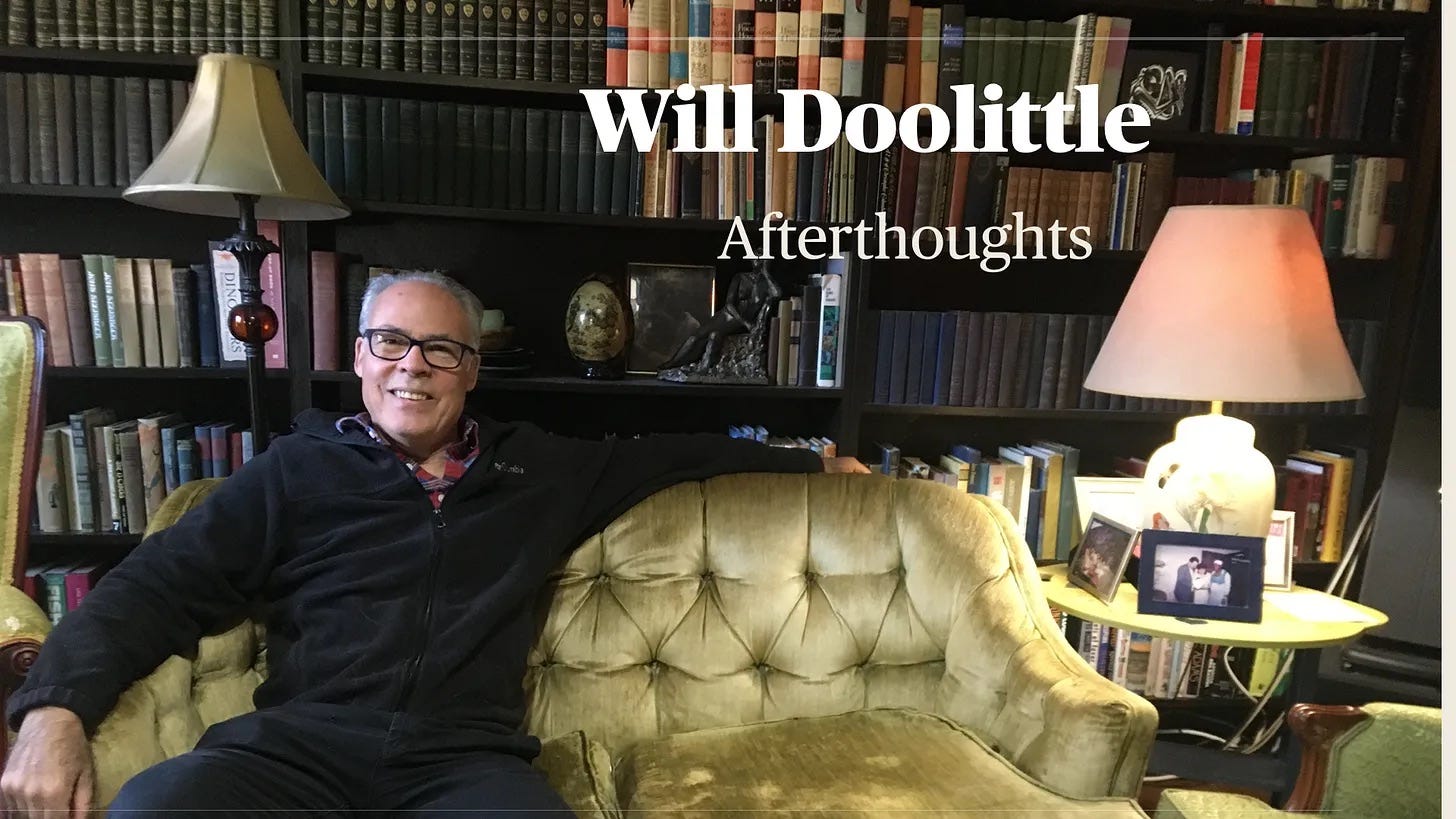Classrooms aren't the place for neutrality
Judgments must be made and expressed
My mom has told me a story about being called in to see the principal of the Sol Feinstone elementary school sometime in the mid-1960s, when we were living in Bucks County, Pennsylvania.
He told her I was having trouble on the playground.
She asked why.
“Well, Mrs. Doolittle,” he said. “He’s so dark.”
I had dark hair then and dark eyes, and I get tan in the sun, but I’m a recognizably white person. That the principal would suggest my not-blond and not-pale coloring was the reason I was having trouble on the playground says a whole lot about him and the prevailing attitude toward race in Bucks County in the 1960s.
Sol Feinstone had an authoritarian style that I look back on with amazement. At the end of each class, we had to line up at the door and be silent, with each student keeping the line straight, before we were allowed to leave the room and march down the hall, silent and in line, to the next class.
We moved to Saranac Lake in 1971, the summer before my sixth grade year, and I found that that, there, students didn’t line up at all but leapt for the doorway when the bell rang and went shouting and rocketing down the hall.
The controlling and disapproving culture I recall from 55 years ago has, apparently, not changed much in Bucks County. The Central Bucks School District is being investigated by the federal Education Department’s Office of Civil Rights for creating a hostile atmosphere for students who are gay or questioning their gender identity.
The school board president, Dana Hunter, has responded to the investigation by demanding the names of the students who complained.
Last week, a principal in the district told a librarian to remove from the library door a poster with the following quote from writer and Holocaust survivor Elie Wiesel:
“I swore never to be silent whenever and wherever human beings endure suffering and humiliation. We must always take sides. Neutrality helps the oppressor, never the victim. Silence encourages the tormentor, never the tormented.”
Librarian Matt Pecic was told the poster violated the district’s ban on “advocacy activities” by its teachers and other educators.
A loud backlash has forced the district to allow Pecic to put the poster back up. But the principal was correct — Wiesel’s quote is an endorsement of “advocacy activity.”
Suppression of a poster that springs from the experience of a Holocaust survivor, on the necessity of supporting the oppressed and opposing the oppressor, is the logical result of the Central Bucks School District’s prohibition of “advocacy activities.”
“Neutrality and balance in classroom instruction are desired,” the policy says.
“Views and beliefs about partisan, political and social policy matters are often deeply personal,” it says, and, therefore, employees should not advocate to students “on these matters.”
“The district's role is to teach students how to think, not what to think, thereby keeping classrooms as places of education, not indoctrination,” the policy says.
And how are students supposed to think about the Holocaust? Jim Crow? Separate but equal? Emmitt Till?
What does neutrality look like when discussing slavery? Should the Confederate viewpoint get equal time?
The problem with the policy is that history is not morally neutral. Judgments can and should be made. Otherwise, high school history teachers could present as an alternative way of looking at World War II the Nazi claims that Germans were racially and culturally superior and, therefore, their rape and oppression of much of Europe — and murder of millions of Jews and others they considered inferior — was justified.
The strongest effect of policies like this one is silence. Teachers unsure of their footing avoid controversial subjects, and students suffer from a safe and watered-down curriculum.
In Bucks County, the effort to silence advocacy began with a reaction against gay and trans students who wanted, for example, to display a gay pride flag or have their teachers call them by a different name.
On this, too, we cannot be silent. The right of gay and trans people to express themselves — as everyone else can — must be upheld or else, as Wiesel says, we are encouraging the tormentor.



I read yesterday about a Dr. who clinically died for 15 minutes and returned to share her NDE. During her clinical death, she experienced a life review. I won't go into the details but basically she had to be and feel the experiences of the other person. So if she said something unkind, she immediately had to feel the experience of being the person receiving the unkind words. This went on for quite a long time and it was very emotional for her both good and bad depending upon how she had treated someone else. I'm sure many don't believe in such a thing, but I do. Life is about empathy and if we can imagine being on the receiving end of any words or deeds, we would surely change our approach to life. This would change education, politics, religion, child rearing, on and on.Do unto others....
Will, I agree and support your position that classrooms cannot be neutral per se. As people we are not neutral in almost anything we think or in some cases do, but there is a fine line between being objective and presenting facts and nuance, and teaching a partisan position. What positions do we support? Where do we draw the line? May teachers push a political view? A religious view? A State view? This is not a simple issue that is for sure, and we need people in positions of authority, such as a school principal, who possess knowledge of the law as it effects students and teacher rights and education, common sense and a real concern for children and young adults. There is a lot of work to be done.